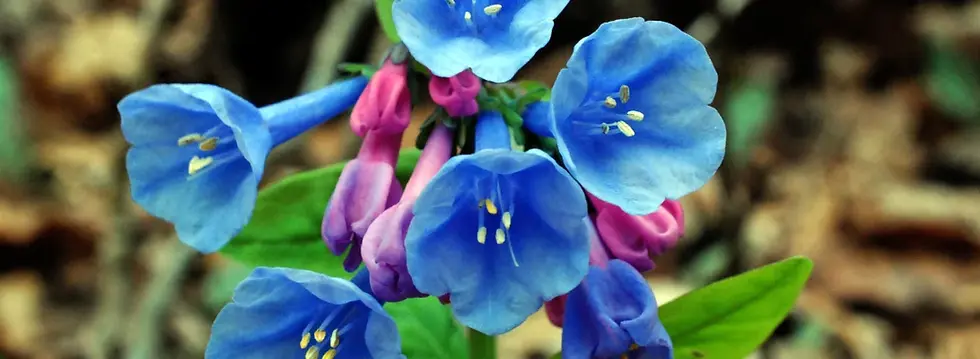Short Springs Natural Area
- Department of Environment & Conservation

- Dec 18, 2022
- 2 min read

Short Springs is a 420-acre natural area located in Coffee County approximately three and a half miles northeast of Tullahoma. The natural area provides excellent contrast between the Highland Rim and Central Basin geology and vegetation. When descending along the Machine Falls trail, a visitor can observe exposed black Chattanooga shale at mid-slope, which is a formation that delineates the Central Basin from the Highland Rim. Thickets of mountain laurel grow on the upper slopes under a dry oak-hickory forest canopy that is characteristic of Highland Rim vegetation. The lower slopes and riparian areas along Bobo Creek support towering sycamore, buckeye, magnolia, beech, and tulip poplar trees with a rich shrub layer and herbaceous cover.
Short Springs is one of the very best spring wildflower locations in the state. In the spring, moist slopes are covered in trout lilies, Virginia Bluebells,

jack-in-the-pulpit, larkspur, and Dutchman's breeches. Large flowered trillium (Trillium grandiflora), southern red trillium (Trillium sulcatum), and barren strawberry (Waldsteinia fragarioides) are uncommon plants for Middle Tennessee that occur here. The natural area also supports two state-listed endangered plant species, Nestronia (Nestronia umbellula) and broad-leaved bunchflower (Melanthium latifolium).

This biological diversity is related to the rich forest slopes and ravines, low cascades, springs and waterfalls that support it. Scenic features like Machine Falls drops more than 60 feet and is nearly equal in length across. The Upper and Lower Busby Falls on Bobo Creek are two prominent cascading waterfalls that can be seen from overlooks on the Bobo Creek trail. The steep escarpment with its numerous wet weather seeps are particularly impressive during the moist winter and spring months. Water is a significant feature at Short Springs as it once was the water supply for Tullahoma before construction of Normandy Dam.
_clipped_rev_1_edited.png)








